26 Aug 2024
Siam Society launches study trip to highlight Thai “melting pot” culture
Bangkok — Thailand’s pre-eminent culture and heritage institution, The Siam Society, has launched its first study trip of prominent “melting pot” sites within Bangkok and its environs. Targetted at serious connoisseurs of ASEAN Cultural Heritage, the four-day trip priced at 36,000 baht will open the way for the itinerary to be commercially adapted, as well as for Thailand to market itself as the world’s first “Alliance of Civilisations” destination.
Although all the stops have been featured separately in earlier Siam Society study trips, this is the first time they have been packaged in one itinerary.
It is one of multiple initiatives by academic and civil groups slowly coming to the fore in line with what former Prime Minister Srettha Thavisin referred to as “a profound reflection of our values as a society – one that embraces differences, celebrates the rich tapestry of human beings.” It is also in line with the socio-cultural unity principles espoused by His Majesty the late King Rama IX the Great, the Thai Royal Family, the Thai government, educational institutions and civil society groups.
Says the preamble of the Siam Society’s announcement, “As a crossroad of mainland Southeast Asia, Thailand has absorbed peoples from all over Asia and Europe over the centuries. These various immigrant groups have shaped Thai culture, each contributing in its own way. The language, cuisine, architecture, urban design, and belief systems of Thailand reflect these disparate influences. Varied cultural strands make up the rich fabric of Thailand’s “melting pot” culture: Mon, Lao, Persian, Indian, Chinese, Tai and European. Language, cuisine, ancient archaeological sites, religious buildings, and historical districts with vernacular architecture illustrate the different cultural influences that have shaped the Thailand of today. These sites span the length of Thai history from the mysterious Dvaravati period, through the Ayutthaya kingdom, to the present Rattanakosin period.”
Conducted by The Siam Society for the Southeast Asian Cultural Heritage Alliance (SEACHA), the trip programme “is designed to introduce Thai culture in a way that the average tourist would find less accessible. Consistent with the mission of SEACHA, at several of the sites visited, experts will discuss the conservation issues faced in preserving the authenticity of the sites, pointing out both successes and failures. Part of the proceeds from this trip will be allocated to support SEACHA’s ongoing efforts to promote cultural heritage preservation and sustainable cultural practices across Southeast Asia.”
In another move, the Samakee (Thai for ‘Unity’) Institute this month launched its second annual “Bangkok Inter-Faith and Cultural Diversity Trip 2024” to be held on Sept 14. This covers a Buddhist temple, Islamic mosque and Christian Church. Targetted mainly at students, the trip is being promoted via a poster which clearly positions it as being in line with #16 of the UN Sustainable Development Goals, viz., Peace, Justice and Strong Institutions.
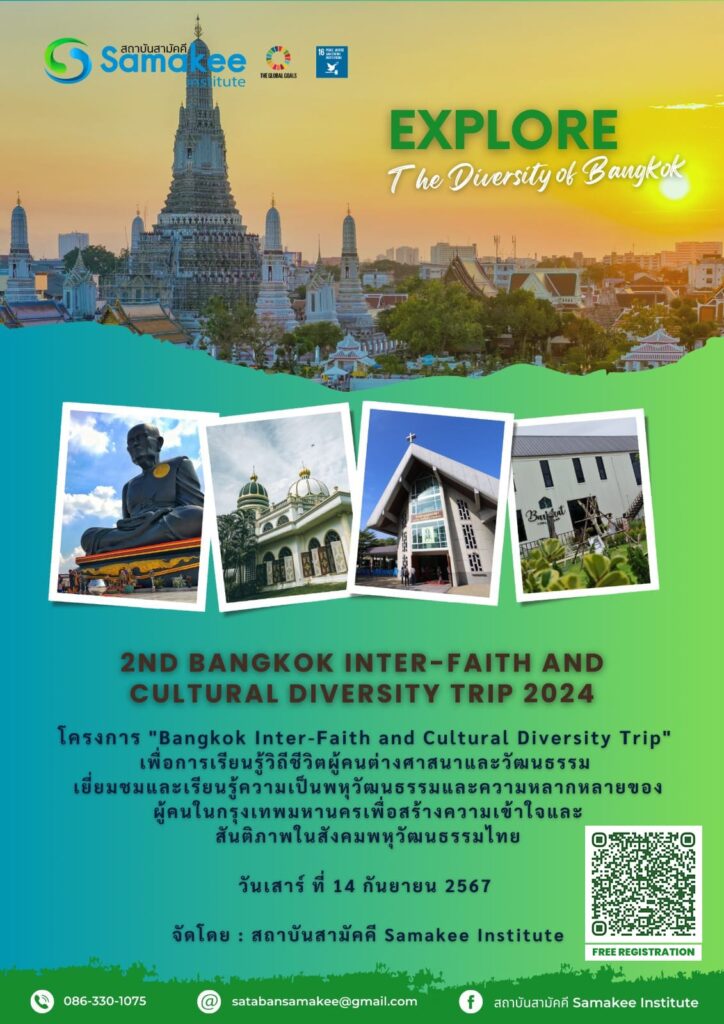
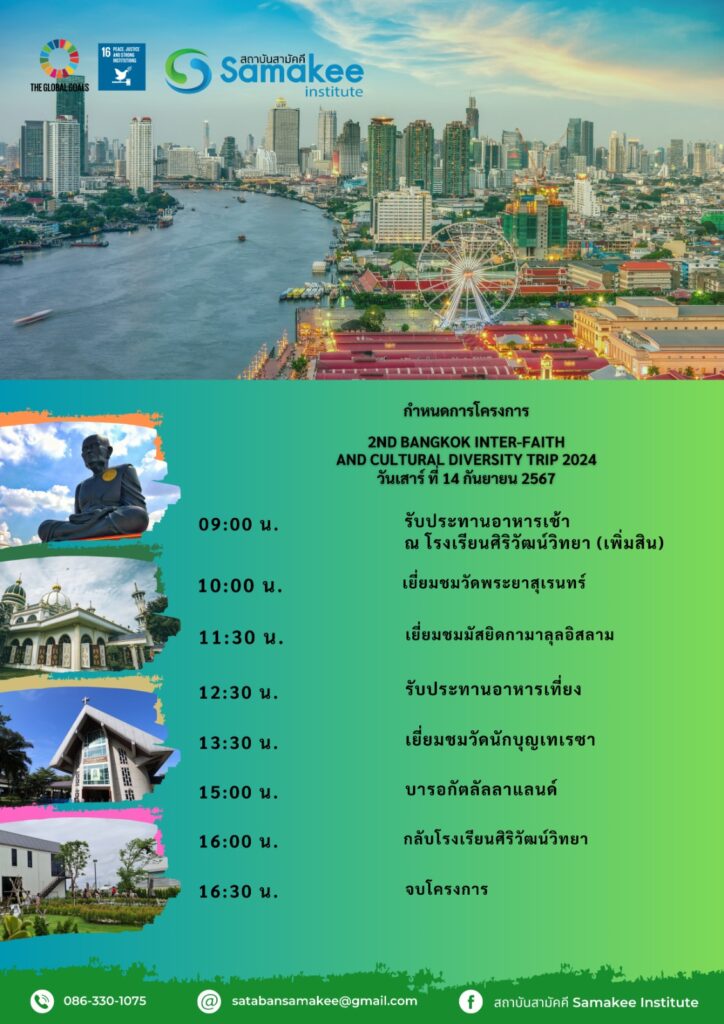 More about the Samakee Institute can be found here https://samakee.org/ (in Thai only).
More about the Samakee Institute can be found here https://samakee.org/ (in Thai only).
Another interfaith peace-building event by the Young Gen was held on August 18, the Thai branch of the Korean-based peace organisation, HWPL (Heavenly Culture, World Peace, Restoration of Light). It organised religious peace camps including visits to Haroon mosque, Muang Khae Temple and Assumption Cathedral. Its three objectives were: 1. Share a case of maintaining interfaith peace in Thailand. 2. Provide the opportunity to experience various religions. 3. Promote Thailand’s exemplary interfaith harmony to the global society.



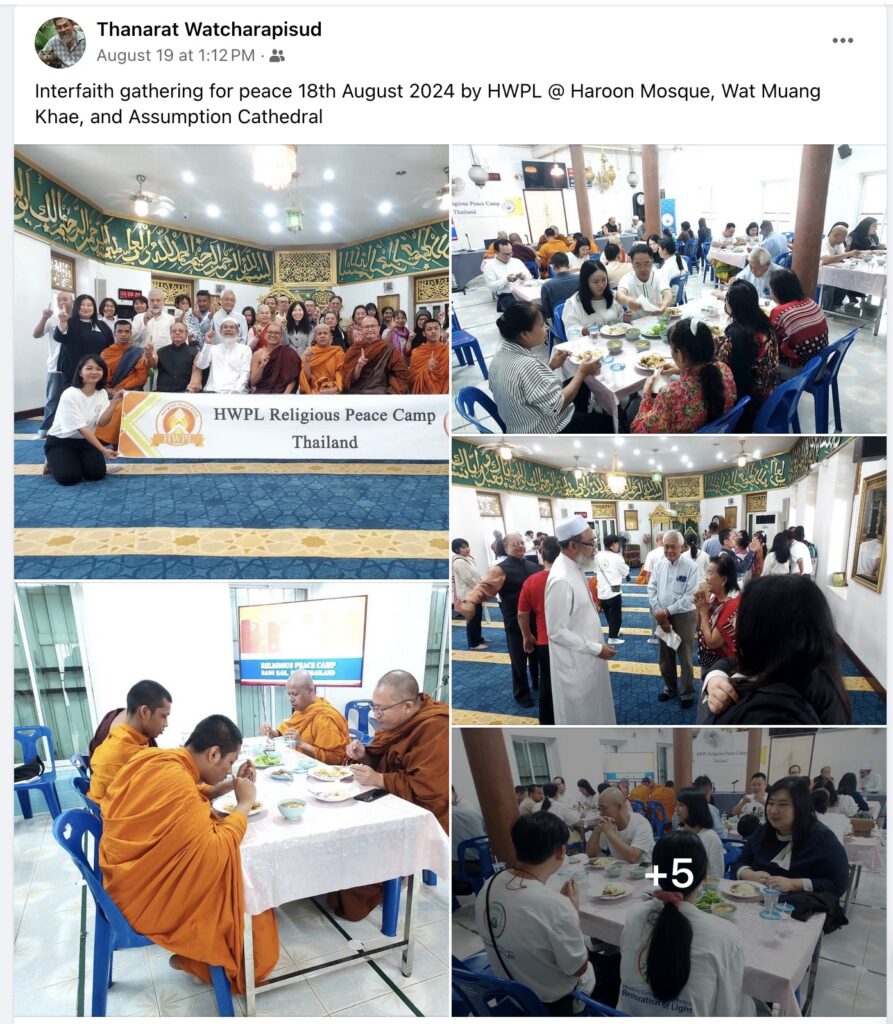
Like tributaries flowing into a river, these displays of multi-cultural diversity are slowly entering the mainstream from many different directions due to their obvious benefits for the society and economy. Marketing this asset is now firmly embedded in Thai foreign policy as the country seeks to build its global image, strengthen its pivotal role at the heart of ASEAN, enhance its relations with the Islamic world, and pitches for membership in the Organisation of Economic Cooperation and Development (OECD) and the UN Human Rights Council for the 2025-27 term.
The policy, which will remain unchanged under the new government of PM Paetongtarn Shinawatra, applies not just to the faiths.
In his remarks to launch a campaign to bring the InterPride World Conference to Thailand, former Prime Minister Mr. Srettha Thavisin referred to the Thailand Marriage Equality law as being not just a legal victory but “a profound reflection of our values as a society — one that embraces differences, celebrates the rich tapestry of human beings, and strives to create a world where love and respect know no bounds.” He noted the benefits to tourism: “Additionally, we are empowering and activating our tourism sector as a vital mechanism to promote this agenda, enhancing Thailand’s image while generating economic growth through the MICE industry, medical tourism, and long-stay destinations for LGBTQ+ families.”
Last March, the former PM led a tour to South Thailand to promote Peace Through Tourism. More about that trip can be found here…https://www.travel-impact-newswire.com/2024/03/thai-pm-leads-peace-through-tourism-visit-to-south-thailand/
Preserving cultural and ethnic harmony was a central pillar of nation-building espoused by His Majesty the late King Rama IX the Great.
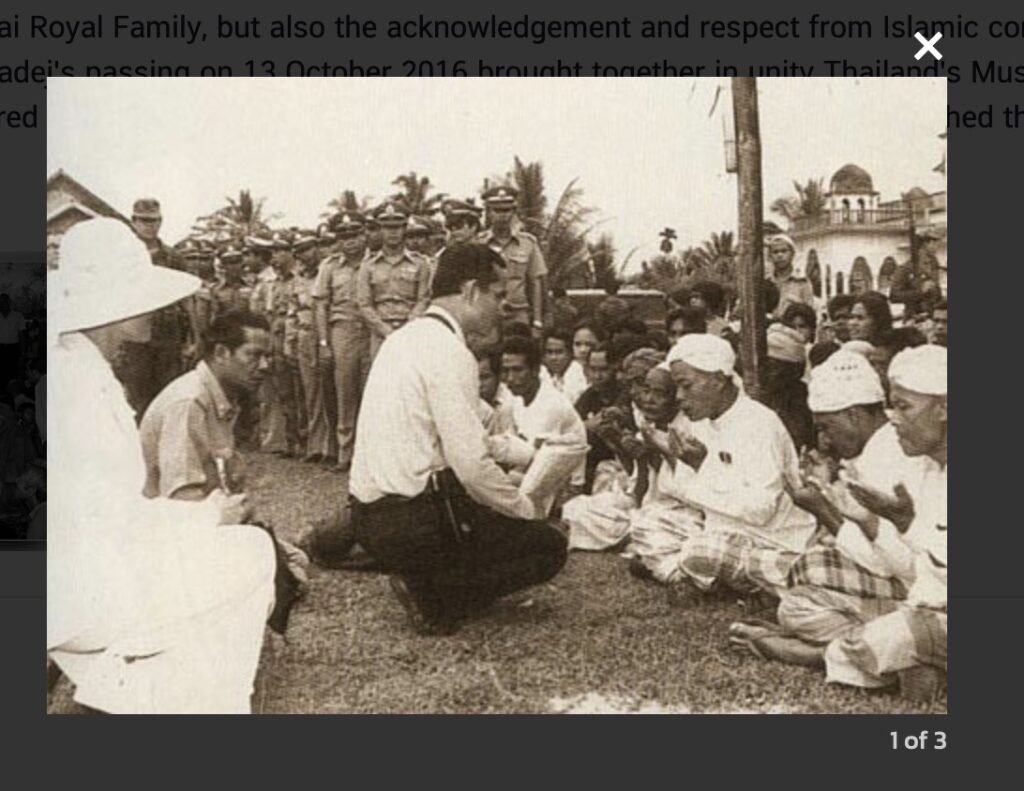
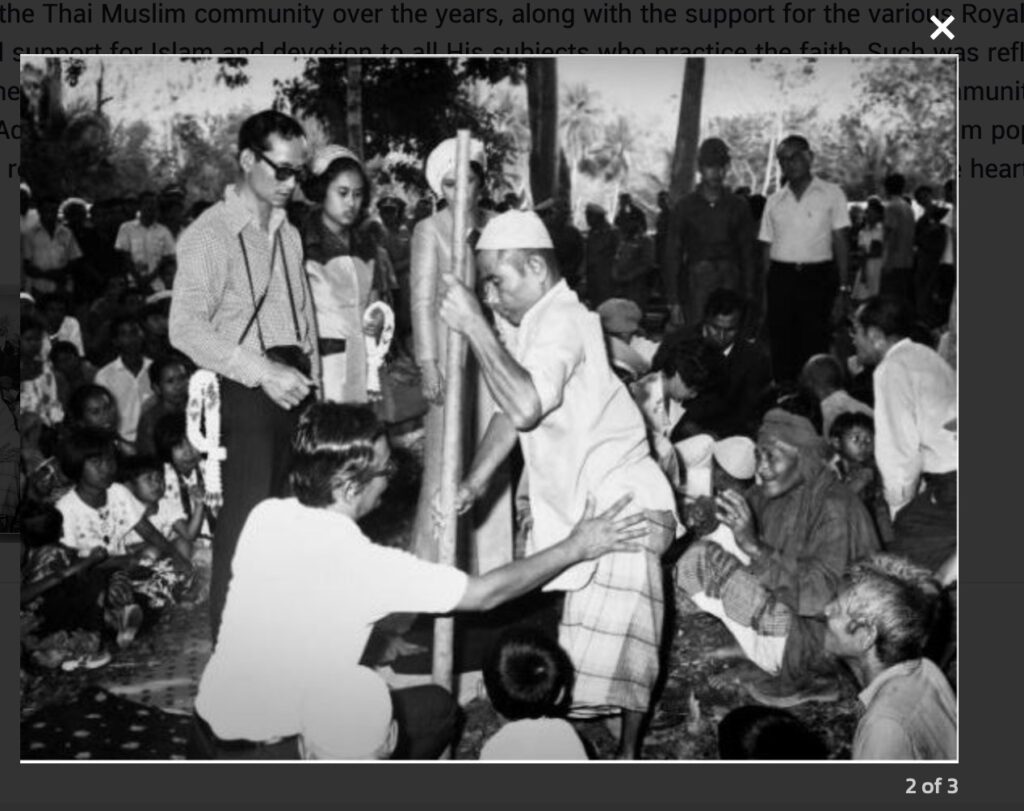
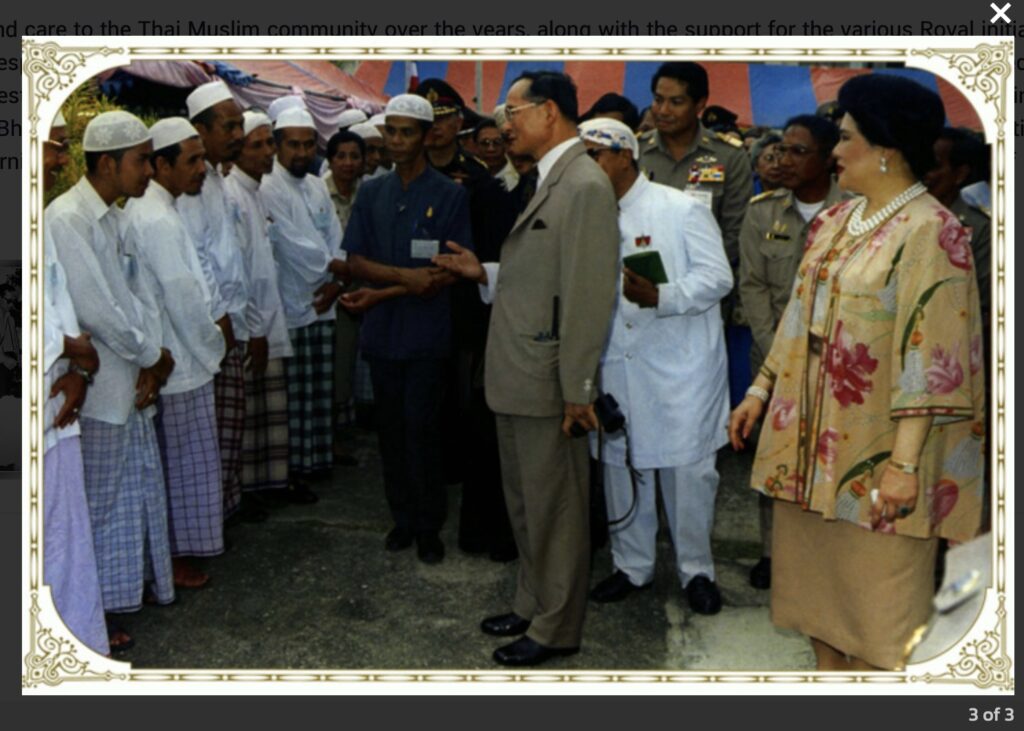
This was continued by the current monarch, His Majesty King Maha Vajiralongkorn who was deputed by his father King Rama IX to attend important Islamic events. He maintained this tradition after he became King.
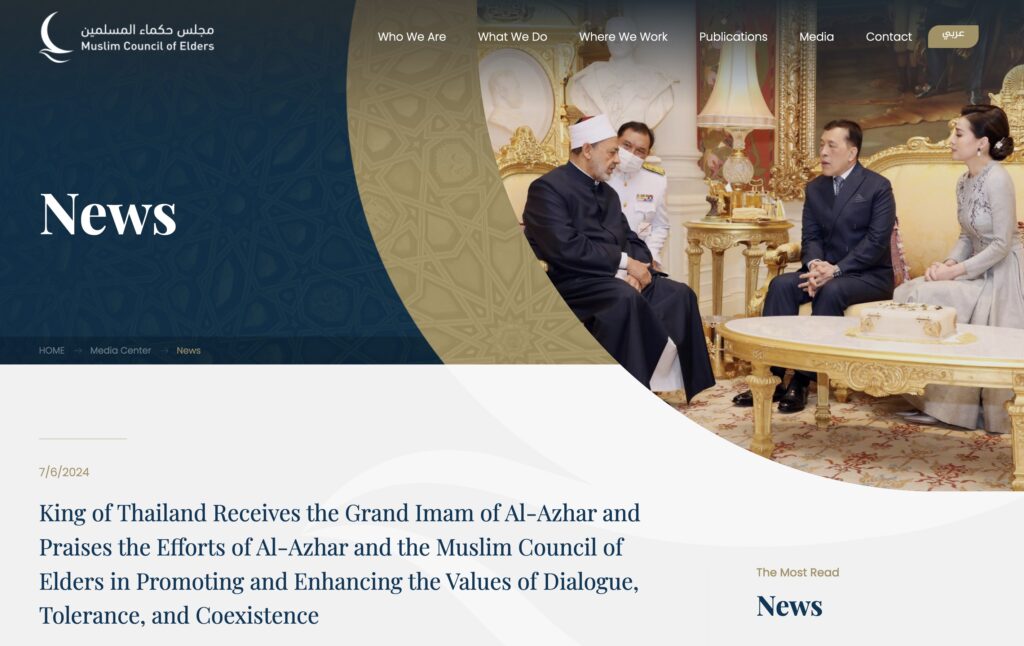
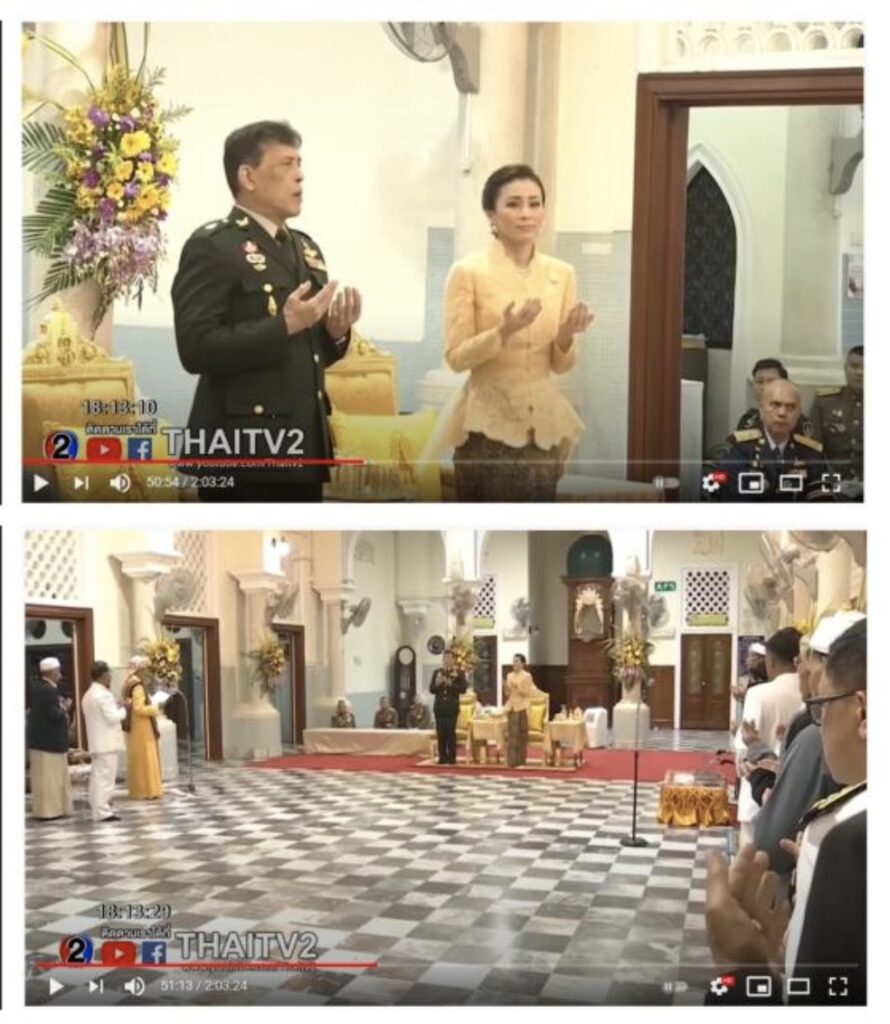
The private sector tourism industry has been slow on the pick-up.
In September 2023, during my two-year tenure as a member of the PATA Thailand Chapter executive committee, I delivered a carefully-researched lecture positioning “Thailand – The World’s First Alliance of Civilisations Destination” along with what I claimed to the kingdom’s first “Peace Tours” itinerary. The initiative received a lacklustre response and was dropped after one committee member, a prominent tour operator, dismissed it as being “difficult to sell.” A few months later, the committee voted me out entirely.
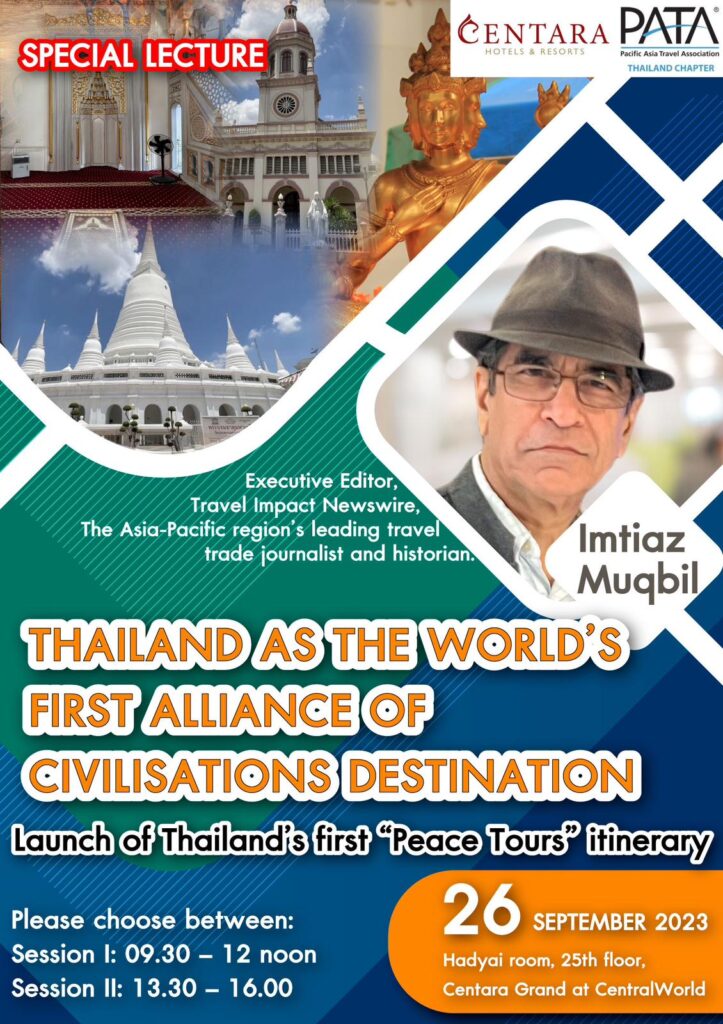
The PATA Thailand chapter, now headed by Mrs Ben Montgomery, Corporate Ambassador for Centara Hotels & Resorts, will find itself on the wrong side of history. As the Siam Society has now shown that “melting pot” study tours can generate a revenue stream, the Thai tourism industry will eventually fall in line.
The theme will gain momentum as Thailand strengthen its ASEAN connectivity. The regional grouping is now drafting its post-2025 Vision Blueprint. Numerous academics have pointed out that the overwhelming focus of the 2016-2024 Blueprint was economic, which needs to be balanced by a stronger socio-cultural connectivity agenda, as per the third pillar of ASEAN integration. ASEAN’s hardware connectivity — airports, roads, ports – is well advanced. The software connectivity — hearts and minds — is lagging well behind.
Here are some of the other developments which I have personally covered over the years to underscore how Thailand has sought to build an inclusive “Alliance of Civilisations” society …
Unwelcome in Europe, U.S.? Welcome to Thailand, former Foreign Minister tells global Muslims
Sec-Gen Surin: ASEAN Identity, Cultural Integration As Important As Economics To Avoid Conflict
60th anniversary book hails umbilical lifeline that bonds Thailand-Malaysia
Now in Thailand: Asia’s first Alliance of Civilisations visitor experience
Tourism tops agenda of Thai Prime Minister’s Feb 27-29 visit to South Thailand
Thailand continues converting battlefields into trading fields, this time in the South
Thai-Muslims to hold First Thailand Halal Assembly to boost travel, trade with Islamic World
Thai Saudi Relations Take a New Turn – A Ray of Light in a World of Darkness
134-member Thai team off to Saudi Arabia to spur ties across multiple sectors
Thai women tourism leaders set a global example for building peaceful, inclusive societies
Buddhist, Muslim leaders pinpoint root causes & solutions of inter-faith conflict
Thai-Muslims Learn How “Halalness” can Benefit Them, Thailand, ASEAN and Islam

